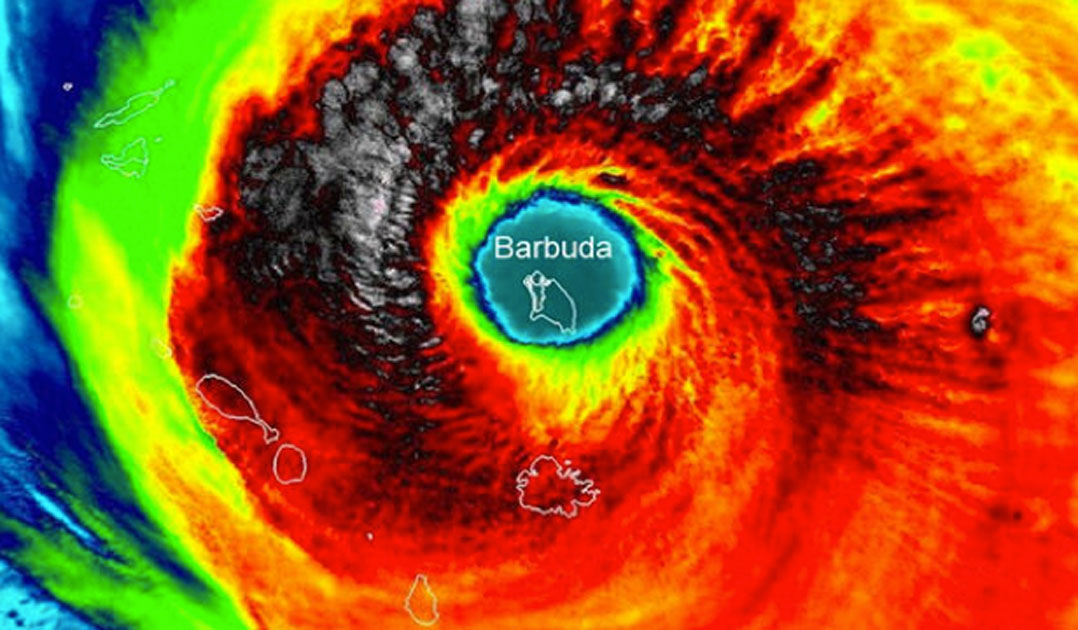Five weeks ago ‘A land rights storm brewing in Barbuda’ was reprinted on this portal. This told the sorry tale of the Prime Minister of Antigua & Barbuda using the catastrophic damage wrecked on the island by Hurricane Irma as the excuse to get rid of the collective ownership of Barbudans of their island once and for all. To replace this, PM Gaston Browne said, households will be given freehold titles for their house plots, so they can access bank loans to rebuild their homes. The implication was that the rest of the island will be leased to lucrative foreign tourism ventures. Browne had already engineered a new law in 2015 to bypass Barbudan resistance to leasing a substantial tract of their land to Robert de Niro and Australian billionaire, James Packer, to develop a high-class resort. Litigation still plagues this development. Browne is more determined than ever to repeal the Barbuda Land Act, 2007.This confirms that Barbudans own the island in common. Although repeal looked set to happen a month ago, local protests, caution urged by local and international actors, and back-to-the-drawing board development planning, stalled the plan. Or so it seemed.
However, now that Barbudans are permitted to return to their home island, they find water and electricity have not been restored, nor schools or the hospital re-opened. Instead, they find the Government constructing an international airport on their land. Who for? Browne admits this is ‘to open up Barbuda for business’. No Environmental Impact Assessment has been undertaken. Forest, wildlife and precious grazing lands have been destroyed for the runway. A British Channel 4 programme on 8 November aired local fears that the threatened land grab is happening before their eyes.
Legal challenge to should the law be repealed is being prepared, including with assistance from a prestigious law chambers in London. Repeal could be easy, for Barbuda as the tiny sister island of Antigua, is guaranteed only one parliamentary seat. Letters have been sent to PM Browne requesting him to respond within seven days to 29 questions as to why even the most basic rehabilitation on their home island is delayed, where donated money has being spent, and why is the runway being constructed on their land without consultation? Browne’s Trump-like response derided Barbudans as ‘imbeciles’ and ‘dunce elements’. He and his supporters on Antigua ‘know what’s best’ for Barbudans.
Most Barbudans do not agree. They remind Antiguans they have approved at least one major investment proposal, and urge development of the island – but on their terms including stringent environmental conditions to protect their pristine heritage. They also refer to experiences with Antiguan and other investors thus far, including a disastrous sand-mining venture, which see revenue flow to Antigua and to foreigners, not to the Barbudan economy. Most of all, they see no reason to surrender their communal ownership, and certainly not for the sake of dodgy investments.
The meaning of the Barbuda Land Act is at the centre of the land rights storm. A discussion by jurists on ABS Radio/Television laid out the history. When brought to the island in the mid 17th century, the slaves were forced to farm the land to keep themselves alive. After the abolition of slavery (1834) Barbudans refused to be evicted by the slave owner from what had become their home. Later, they refused to pay him rent. The British Crown concurred. In 1901 their rights were recognized on the basis of long occupancy. Yet attempts by Antiguans to revoke these rights continued, including after Independence in 1981.
When Gaston Browne’s Labour Party lost power in 2004, the matter was legally settled. The now Opposition enacted the Barbuda Land Act, 2007. This established that “All land in Barbuda shall be owned in common by the people of Barbuda”. Browne maintains the law is unconstitutional, that there can only be one form of ownership for both islands. He also argues that Barbudans only own rights to the land, not the land itself, which remains vested in the Crown, in trust for Barbudans. Indeed, this is so. As it is also the case in England and Wales, where the same Crown owns the soil in trust for owners of rights to that soil, rights that are held and traded in freehold, leasehold, or in other entitlements, such owning in common. The case is similar in many African and Asian countries with the same archaic English common law heritage. Dismissing Barbudan rights to the land as less than property interests is unlikely to succeed in the courts. For sure, the Barbuda Land Act needs attention. But not the kind that investor-wallahs imagine. Barbudans need legal assurance that their property rights in common are protected, and as worthy a basis of ownership as any other, upon which to secure investment – should they wish. This is the privilege of ownership.
Liz Alden Wily is a Fellow of the Van Vollenhoven Institute for Law and Development, Leiden School of Law, The Netherlands.

